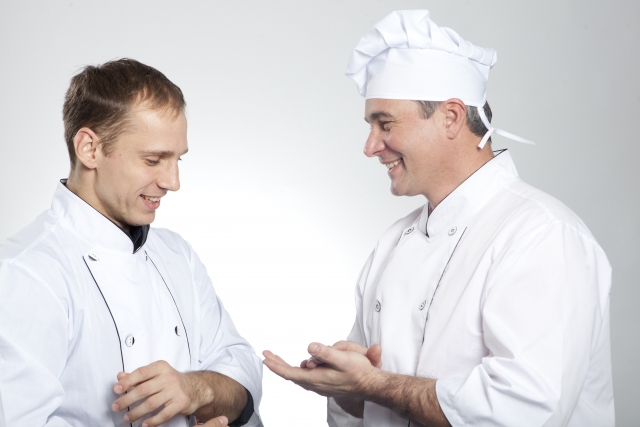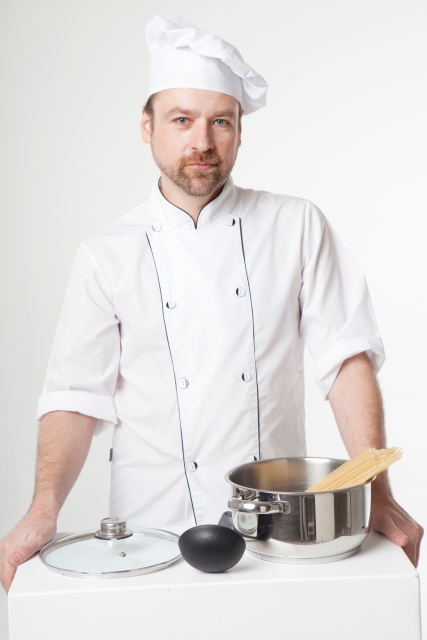
Skilled Labor Visa
“Skilled Labor” is a status for a person who wish to work as chefs specializing in the food of a foreign country, animal trainers, pilots,sports trainers, sommeliers, etc. in Japan.
Criteria
The applicant should fall under one of the following categories and should receive no less salary than a Japanese national would receive for comparable work.
- A person with experience in foreign cooking or special food preparation originating abroad. (At least 10 years experience is required, including the period of time spent studyingat educational institutions in a foreign country while majoring in the skills concerned)
- A person with experience in architecture or civil engineering characteristic to foreign countries. (At least 10 years experience is required, including the period of time spent studyingat educational institutions in a foreign country while majoring in the skills concerned)
- A person with experience in manufacture or repair of products special to foreign countries. (At least 10 years experience is required, including the period of time spent studyingat educational institutions in a foreign country while majoring in the skills concerned)
- A person with experience in processing of gems, precious stones or fur. (At least 10 years experience is required, including the period of time spent studyingat educational institutions in a foreign country while majoring in the skills concerned)
- A person with experience in training animals. (At least 10 years experience is required, including the period of time spent studyingat educational institutions in a foreign country while majoring in the skills concerned)
- A person with experience in seabed digging for oil exploration or development or terrestrial heat or the study of the seabed for minerals exploration. (At least 10 years experience is required, including the period of time spent studyingat educational institutions in a foreign country while majoring in the skills concerned)
- A person with at least 2500 hours’ experience in piloting an aircraft who is to engage in job as a piloting an aircraft who is to engage in a job as a pilot of an aircraft used for air transport provided for by Article 2, Paragraph 16 of Aviation Act (Law No.231 of 1947) which a person cannot pilot as a captain without the qualification of pilot in air transport of an airline provided for by Article 24 of the Act.
- A person with at least 3 years’ experience in instructing sport.

Materials
(i) Certificate of matters entered in the registry and a copy of the profit and loss statement of the inviting organization.
(ii) Material certifying the contents of business of the inviting organization.
(iii) Curriculum vitae and a document issued by a public organization certifying the
alien’s background and qualifications pertaining to the activities.
(iv) Document certifying the contents and period of the activities and the alien’s
position and reward.
(i) Document certifying the contents and period of the activities and the alien’s position.
(ii) Certificate of the alien’s annual income and amount of tax paid.
If you are interested in applying for skilled labor visa, please contact us for further information.

FAQS of skilled labor visa
Q. I heard that a restaurant that does not offer course meals cannot invite a chef on a skilled labor visa. Is this true?
A. It is preferable to have a course meal. However, even if there is no course meal, there is a possibility to obtain a technical visa if the food is prepared in a special way and can be considered authentic foreign cuisine.
Q. What kind of food is specifically defined as a skill related to food preparation or food production, which was invented in a foreign country and is unique in Japan?
A. It includes Chinese, French, Indian, etc., dim sum, patisseries, etc.
However, even if a dish falls under the above categories, a technical visa cannot be obtained if it is prepared in a way that does not require skilled techniques, such as simply heating the food in a microwave oven or boiling it. In addition, items that are already popular in Japan, such as curry rice, ramen noodles, and yakiniku (barbecued meat), are not considered to be industries unique to foreign countries and are not eligible for a technical visa.
Q Can a chef of Japanese cuisine obtain a technical visa?
A In order to obtain a skilled labor visa as a chef, the chef must have “skills related to food preparation or food production that were invented in a foreign country and are unique in Japan. Japanese cuisine does not fall under this requirement because it was not invented in a foreign country. Therefore, Japanese cuisine chefs are not eligible for a skilled labor visa.
Please note that although there are some cases of Japanese restaurants obtaining cultural activity visas, they are not allowed to engage in work activities because a cultural activity visa is not a work visa.
Q. Does teaching qigong or yoga fall under the category of a technical visa?
A. If the purpose is physical training, there is a possibility that you can qualify for a technical visa as a sports instructor. On the other hand, qigong therapy for the purpose of disease treatment and yoga instruction for the purpose of beauty and health are not considered sports instruction and do not qualify for a skilled labor visa.
Q Does the work experience for a skilled labor visa include the period of majoring in a subject related to the relevant technical skill at an educational institution in a foreign country?
A. No. The Ministerial Ordinance on Technical Visa Criteria defines “foreign educational institution”, so majoring in a Japanese educational institution is not included in the work experience for a skilled labor visa.
Q I am thinking of managing a Chinese restaurant. In this case, can I obtain a business administration visa?
A. A business management visa prohibits working as a chef, so if the owner of the restaurant is the owner-chef and mainly prepares dishes, it is necessary to obtain a technical visa instead of a business management visa. On the other hand, if the owner-chef does not work in the Chinese restaurant and is engaged exclusively in management activities, he/she would be eligible for a business management visa.
Q We would like to hire a sommelier for a hotel restaurant.
A. No. Working as a hall staff other than sommelier is considered non-statutory work and does not qualify for a skilled labor visa status. In the actual examination by the Immigration Bureau, it is an important point of examination that hall staff other than sommeliers are available.
Q If I coach professional athletes, does my visa status fall under the technical visa category?
A. Trainers and coaches who work independently of professional athletes are eligible for a technical visa. On the other hand, in the case of activities that are integrated with the activities of professional athletes, for example, managers and coaches of professional baseball teams participate in entertainment activities as an integral part of the team and are considered activities that accompany professional athletes, they would fall under the entertainment visa category.
Q. Is 5 years of work experience enough to be employed as a sommelier?
A In order to obtain a technical visa as a sommelier, the applicant must have one of the following;
(1) Have won a prize or more in an international sommelier competition (for example, the “World’s Best Sommelier Competition” organized by the International Sommelier Association).
2) Have participated in an international sommelier competition where the number of contestants is limited to one per country.
(iii) Has a qualification accredited by a national government (including foreign countries), a local government (including foreign local governments), or a public or private organization equivalent thereto, which is specified in a public notice by the Minister of Justice, with regard to skills related to wine appraising, etc.
Q. What kind of document is required to prove the chef’s work experience?
A. You can prove your work experience with a document that shows what kind of work you were doing, such as a photograph of the interior or exterior of the restaurant where you were employed abroad, a photograph of the kitchen, a certificate of employment, or a certificate of professional qualification.
Q. What exactly do you mean by manufacturing or repairing products unique to a foreign country?
A. It refers to skills related to the manufacture or repair of products that do not exist in Japan, such as glassware unique to Europe and Persian carpets.
Our services
We provide consultations and application services for visa for those who are having trouble with it.
If you are interested in applying for visa, please feel free to contact us for further information.




